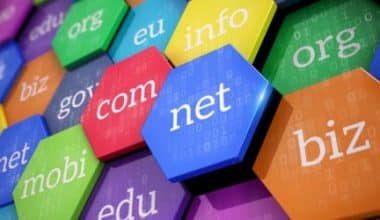Collaboration skills are required for practically every job and industry. You may improve these talents in a variety of ways to help you achieve more success in your position. Understanding how to work well with people can boost workplace efficiency, help you develop in your profession, and help you and your team accomplish greater results. In this article, we discuss collaboration skills, the steps you can take to improve them, example, and some effective types of collaboration skills including teamwork. Let’s get to it.
Collaboration Skills Definition
When two or more people work together to achieve a similar goal, they are collaborating. As a result, collaboration skills encompass everything required to work successfully with others and produce outcomes as a team. A good workplace collaborator is an influential team member, communicator, decision-maker, and leader.
Collaborating does not simply imply working together to finish a project. To cooperate effectively, you must form relationships with your teammates, understand how to manage disputes, and create an inclusive, respectful working atmosphere. Here are some instances of how cooperation abilities appear in the workplace:
- Providing updates to your management in order to solicit feedback
- Recognizing the efforts of other team members
- Sharing knowledge and helpful hints with team members in order to improve group procedures
- When there is friction among team members, intervene and strive to resolve it.
- promoting inclusive workplace practices to ensure that all team members feel respected
Why Are Collaboration Skills Important?
Collaboration abilities are among the top qualities companies want in 2023, and for good reason: they help us solve problems, learn from one another, and enhance our job.
#1. They Help Us Solve Problems
A hiring manager evaluates individuals for the characteristics and abilities they can contribute to a team, but they do not expect a single person to enter a company and fix problems on their own. They prefer that they collaborate with others. A good collaborator knows when and who to ask for assistance.
#2. We Learn From Each Other
Every employee contributes their own set of talents and perspectives to the workplace. Collaboration promotes skill sharing so that everyone can learn from one another, whether it’s as simple as an Excel hack or as complex as a new sort of process that can boost productivity.
#3. They Make Our Work Better
Our work improves when we explore diverse views and incorporate ideas from others. When we cooperate, we rely on others to provide input and comment on what we’re working on. As a result, we create work that is a product of several voices, backgrounds, and skill sets, harnessing the potential of many individuals rather than relying on a single person, mindset, and perspective.
Example of Skills to Enhance Collaboration
Collaboration skills are a set of soft talents and behaviors that encourage collaboration and teamwork. Some skills are more concerned with working personally with people, while others are more concerned with functioning well in a team environment.
Personal Collaboration Skills
Here are some of the soft skills required to enhance workplace collaboration:
#1. Written and verbal communication
Your capacity to share your message with others in spoken and written language is referred to as written and verbal communication abilities. When working together, you may discuss various tactics, processes, and other topics in order to finish a task. You may also leave notes or write emails for others, making it critical to convey your views and ideas in a way that others can comprehend.
#2. Active listening
Active listening is the ability to actively listen to what someone is saying to you. For example, if a team member shares a project concept at a meeting, nod to signal you’re paying attention.
#3. Emotional intelligence
Understanding your feelings and recognizing how others may feel are examples of emotional intelligence. Using your emotional intelligence in collaboration skills can help you discover new methods to collaborate in a more effective way.
#4. Trust
Believing in another person’s character characteristics and talents is what trust is all about. In a collaborative atmosphere, trusting people means letting them work on their duties and knowing they will complete them by the deadline while adhering to the parameters to deliver quality work. Furthermore, it can imply that you trust others to seek assistance when they face a problem rather than attempting to handle it on their own.
#5. Interpersonal skills
Interpersonal skills are characteristics that you use when engaging and communicating with others. They cover a wide range of scenarios in which communication and cooperation are critical. People skills, as they are commonly known, involve both your basic personality qualities and how you’ve learned to handle particular social circumstances.
#6. Diplomacy
Diplomatic talents include a variety of strengths and abilities that help professionals handle professional interactions. The techniques you choose to establishing good diplomatic abilities might be related to how you make professional connections, perform on the job, and handle difficult situations.
#7. Compromise
Compromise helps you to strive toward a solution that fits the needs of the cooperating team. You can utilize this talent in the job when the resolution of an issue is important to you yet you value the opinions of others. You can put finding an effective answer ahead of being correct in a scenario.
#8. Patience
Some collaborations can take a long time to complete, requiring compromise and flexibility on occasion. Rather than rushing to a conclusion, you may need to exercise patience in order to arrive at a shared and beneficial conclusion or solution.
#9. Open-mindedness
The ability to be less judgmental and more inquisitive, introspective, and considerate is defined as open-mindedness. It is one of the most influential abilities in terms of collaboration. The ability permits you to value opposing viewpoints and thrive in various surroundings where you can engage with people with diverse thoughts and backgrounds.
Teamwork Collaboration Skills
Here are some of the cooperation skills required to foster workplace teamwork:
#1. Organization
Organizational skills refer to your ability to plan your daily duties and time. When working with others, having organizational abilities is advantageous since it allows you to create a timetable for the team to follow. You may discover that it aids in keeping the team on track and efficiently planning their days in order to finish high-quality job.
#2. Decision-making
Making judgments is an important skill since it demonstrates your capacity to think rationally and analyze many options. With these abilities, you may make informed decisions after gathering all essential facts and data and considering many points of view. All are essential in workplace collaboration.
#3. Flexibility
Collaboration requires the flexibility to adapt to a variety of conditions and problems. When you are adaptable, you can grasp different points of view, identify alternative solutions to challenges, and change your job responsibilities or processes as needed.
#4. Conflict resolution
The capacity to resolve conflicts is sometimes regarded as a leadership characteristic. This allows you to detect issues, pinpoint the root reason, acknowledge opposing viewpoints, and reach an agreement. It also increases your likelihood of putting personal disagreements aside so that collaborative work can continue.
#5. Time management
When choices must be made swiftly in a collaborative setting, time management skills can help you maintain track of crucial deadlines. schedule management will also help you provide status reports on schedule to keep everyone up to date on problems and solutions.
#6. Professionalism
Professionalism refers to the abilities and activities that demonstrate your regard for others. As a professional employee, you are courteous to others, take responsibility for your tasks, and demonstrate that you are a dependable team member.
#7. Leadership
Leadership abilities can be essential assets in your job, regardless of whether you work in a supervisory capacity. This Leadership talents imply the ability to encourage, instruct, and guide people. People with leadership skills are confident in their abilities to assist others in working, collaborating, problem-solving, or succeeding in their roles.
#8. Critical thinking
Critical thinking abilities enable you to comprehend and respond to circumstances based on all available facts and information. Collecting facts and data, asking intelligent questions, and examining potential solutions are all part of the critical thinking process. These abilities enable your team to work together toward a single goal.
How to Improve Your Collaboration Skills
Collaboration skills are not something you are born with; they must be learned. Learning, like everything else, is a constant process.
Here are five excellent strategies to help you and your team improve when it comes to collaboration skills:
#1. Approach Change Positively
Change is almost always stressful, but that doesn’t mean you have to be the grouchy old lady in the room. Change may be beneficial when implemented properly, and your team will be seeking for someone to demonstrate this to them. Replace negative emotions with a safe space for communicating concerns and fears, and keep lines of communication open.
#2. Build and Maintain Trust
Every good connection is built on trust. It’s also difficult to construct and extremely easy to destroy. Instead of telling everyone how trustworthy you are, demonstrate it by your actions. Keep your promises and respect confidentiality.
#3. Use Project Management Tools
It is not always necessary to have soft abilities. Working well as a team sometimes necessitates first perfecting the tools and processes. You are not required to purchase the most expensive and difficult project tool available. Even tools you currently have access to (such as Office, Outlook, Google Docs, Slack, Asana, and Trello) can be useful at times. In order for your team to get involved, ask them what would be most beneficial.
#4. Improve Your Self Awareness
Nowadays, EQ is very popular, and it mostly focuses on being aware of your stressors and controlling how you react to them. Take note of how you respond in difficult situations or how your behavior appears to others. You can also simply solicit input from others. Understanding your behavior might help you reduce the negative influences you may have on others.
#5. Celebrate Differences
We are all unique, and there is no reason to expect or attempt to make everyone the same. Utilize an individual’s abilities and diverse viewpoints to enhance teamwork. Team members will feel more included and engaged as a result.
How to Highlight Collaboration Skills
Here are a few ideas for emphasizing your skills during a job search:
#1. On your resume
There are a few parts on your resume where you can highlight your collaborative talents. For example, you may put collaboration in a section dedicated to your skills. Alternatively, in your experience area, describe how you cooperated with former colleagues or clients in previous employment. Sharing on your resume that you are a collaborative individual might help show companies that you are adaptable in your working approach.
#2. In your cover letter
You have a few alternatives for discussing your talents in a cover letter. One approach to achieve this is to share abilities that you may not have put on your CV to show them that you have a diverse skill set to assist you complete jobs.
#3. At a job interview
During a job interview, a hiring manager may inquire about the talents that have prepared you for the position for which you are applying. This is an opportunity for you to speak directly about your capacity to interact well with others.
The firm may ask situational and behavioral questions during an interview to determine how you work and your typical reaction or attitude to difficult situations.
What Are 3 Examples of Having Good Collaboration Skills?
Give and receive input from peers or other team members in order to complete the task; share credit for good ideas with others; and recognize the expertise, experience, creativity, and contributions of others.
What Are the 7 Main Components of Collaboration?
The following are the 7 Essential Elements of Collaboration:
- Cooperation.
- Assertiveness.
- Autonomy.
- Responsibility/Accountability.
- Communication.
- Coordination.
- Mutual Trust and Respect.
How Do I Say I Have Good Collaboration Skills?
On your resume, exhibit good teamwork collaboration skills by doing the following:
- Mention times when you had to work as part of a large team.
- Describe some team issues you have helped resolve.
- Talk about projects that had to be done in no time.
- Demonstrate how creative you can be when tackling unfamiliar problems.
Why Collaboration Is an Important Skill?
Collaboration skills improve how your team works together and solves problems. This results in more innovation, more efficient processes, greater success, and better communication. You may help each other achieve your goals by listening to and learning from team members.
What Are the Three 3 Important Aspects of Collaboration?
So, the three most critical abilities for cooperation and collaboration include:
- Workplace communication.
- Respect for diversity in the workplace.
- Build trust with employees.
What Are the 4 Types of Collaboration?
Types of Collaborative Working include:
- Team Collaboration.
- Community Collaboration.
- Network Collaboration.
- Cloud Collaboration.
Conclusion
Every employment necessitates collaboration in order to comprehend the company’s goals and how each individual contributes to accomplishing those goals. Show off your collaboration talents by narrating the story of how you collaborate with others – whether you’re great at providing brief, clear updates to team members or hosting inclusive, constructive feedback sessions.
- WHAT IS COLLABORATION: Definition, Examples, Software & Importance
- COLLABORATION SKILLS: Definition, Examples & How to Improve
- LEADERSHIP QUOTES: 35 Inspiring Quotes of All Time
- HUMAN RELATIONS: Meaning, Theory, Workplace, Commission & Importance.
- DATA ANALYST: Overview, Salary, Job, Resume & All You Need
- EMPLOYEE RECOGNITION PROGRAMS: Meaning, Ideas, Examples & Steps to Build an Effective One
- CIA AGENT SALARY: How Much Do CIA Agents Make in 2023?





